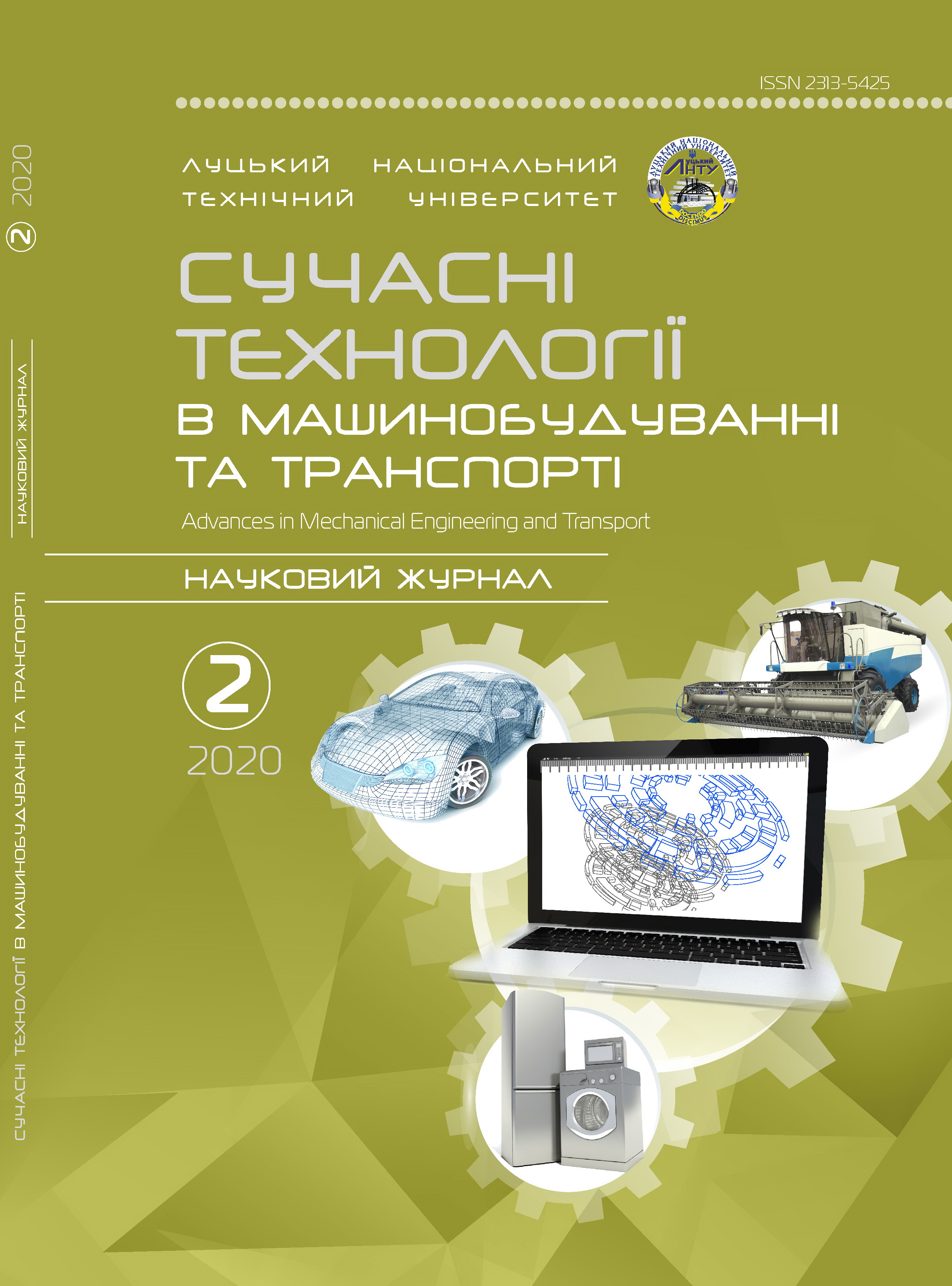Assessment of the influence of changes in the parameters of the utility function on the trip distribution between the transport zones of the city
Abstract
The purpose of this work was to determine the coefficients of the utility function of Box-Cox in the distribution in the Visum software demand for public transport in Lviv and assess the impact of their change on the results of the trip distribution.
The trolleybus route № 29 of Lviv was chosen for the simulation. The territory of its passage was digitized in Visum, the necessary initial information about the route was entered, as well as field research was carried out in order to determine the size of passenger flows and the formation of the initial matrix of correspondence.
At the stage of trip generation, when calculating the four-stage model of transport planning, the total number of trips produced and attracted by each transport zone on the route is determined. At the stage of trip distribution, the received correspondence is distributed between the activity pairs (depending on the purpose of the trip). As a result, seven demand matrices were obtained. The coefficients of the Box-Cox utility functions were determined based on the results of constructing an elliptical model of the survey territory.
To analyze the influence of the values of the coefficients of the utility function Box-Cox on the values of the resulting matrices in Visum recalculated the stage of trip distribution at different values of the coefficients. The change in the coefficients does not affect the total amount of trips but affects the number of arrivals in each transport zone. The limit values of each of the coefficients are calculated, at the excess of which the error in their definition significantly affects the values of the elements of the matrix
Based on the calculations, it can be concluded that at insignificant values of the coefficients of the utility function Box-Cox inaccuracy of their definition is permissible, but with increasing absolute values, the error in their calculation significantly affects the final result.




